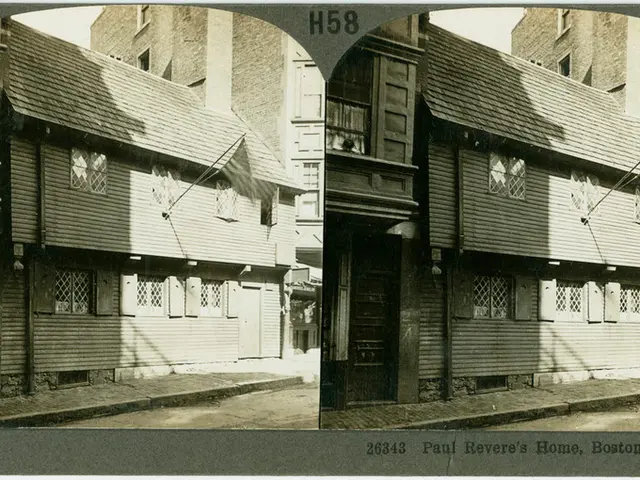Allegations of mortgage fraud against Federal Reserve Governor Lisa Cook have surfaced, but industry experts find it challenging to establish concrete evidence.
In the realm of real estate, two significant topics have been making headlines recently - mortgage fraud allegations and the various benefits for primary residence homeowners.
Homeowners can enjoy a range of tax advantages, both at the federal and state levels. One such benefit is a capital gains exemption, worth up to $250,000 for single filers or $500,000 for married couples filing jointly, which can be claimed by homeowners who meet certain IRS rules, including maintaining owner occupancy for two of the past five years.
Mortgage interest rates for primary residences are generally lower than for investment properties, typically ranging between 0.5% to 1% lower. This difference can significantly impact monthly payments and overall mortgage costs.
However, it's important to note that fraudulent activities have been detected in the mortgage sector. A report has revealed that fraudulent borrowers, who typically took out larger loans and had higher mortgage default rates, were more prevalent in the past.
Recent mortgage fraud allegations have been levelled against public figures such as Sen. Adam Schiff and New York Attorney General Letitia James, as well as Federal Reserve governor Lisa Cook. The allegations against Cook involve claiming homes in two different states as her primary residence at the same time.
Proving which home is the primary residence is based on facts and circumstances, such as where the owner spends most of their time, votes, files their tax returns, and receives mail. If a homeowner changes primary residences, they need to inform their mortgage lender that the original property is no longer owner-occupied.
In the court of law, proving mortgage fraud can be challenging, according to Jonathan Kanter, a law professor at Washington University in St. Louis and a former assistant attorney general.
The number of mortgage fraud offenders sentenced in the federal system has decreased from 426 offenders in 2015 to 38 in 2024, according to the United States Sentencing Commission's interactive data analyzer. However, the U.S. Sentencing Commission data does not break out the types of mortgage fraud.
For tax purposes, a homeowner can have only one primary residence at a time. Owner-occupied means the homeowner will live there the majority of the time, with limited exceptions for military service, disabled adult children, or parents providing housing.
Homeowners typically pay about 25% more for insurance as a landlord compared with a standard homeowners policy. This difference in insurance costs is one of the factors that make owning a primary residence more financially advantageous than investing in multiple properties.
In conclusion, while there are benefits to owning a primary residence, it's crucial for homeowners to understand and adhere to the rules to avoid potential fraud allegations. The complexities of mortgage fraud and the advantages of primary residence ownership highlight the importance of accurate record-keeping and transparency in real estate transactions.








